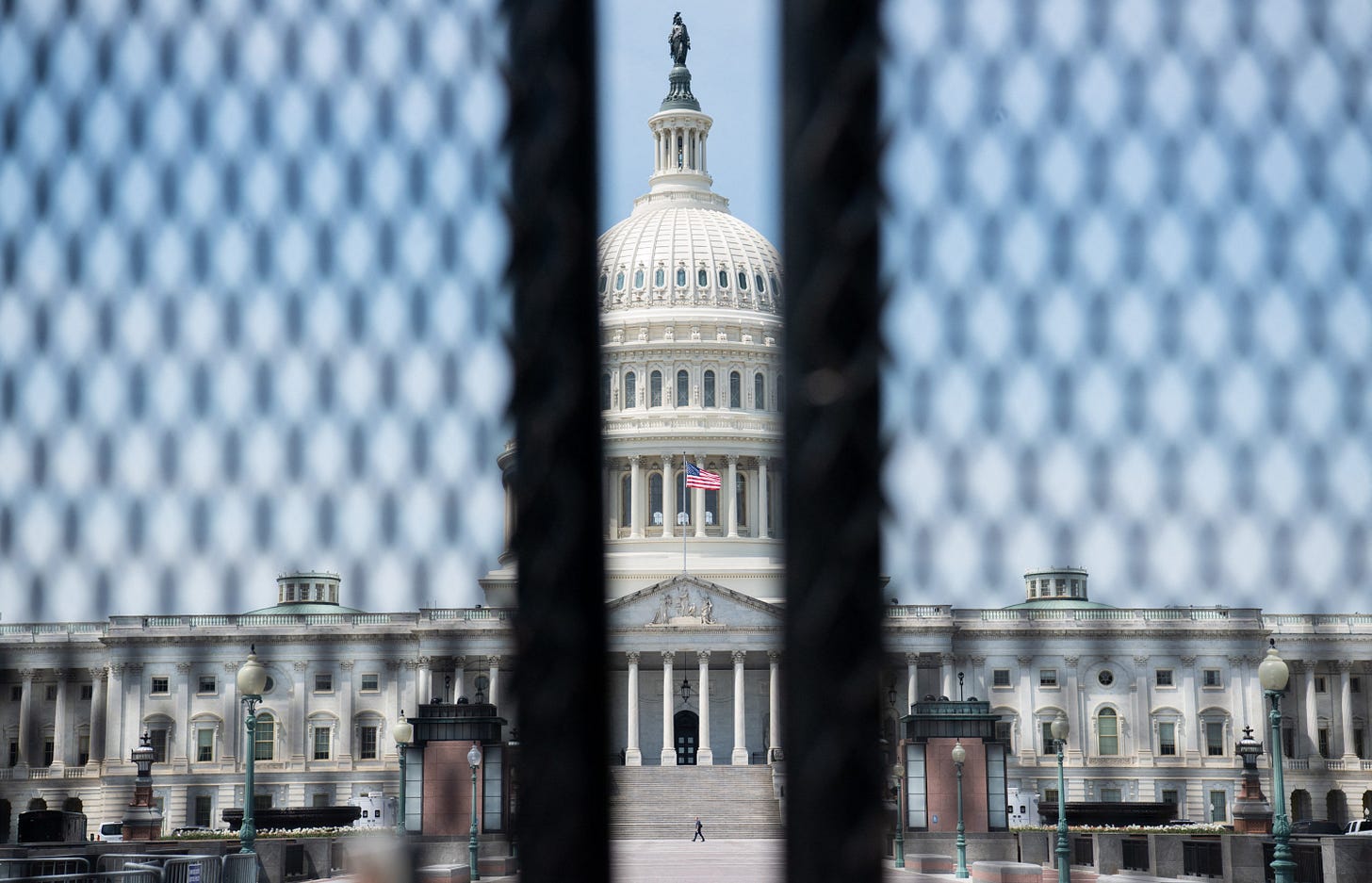Enemies Foreign and Domestic
Democracy preservation should be at the top of the list of national security priorities. Is it?
In early April, the leaders of the U.S. intelligence community outlined the most pressing national security threats facing the nation during testimony to the Senate and House intelligence committees. While the written testimony from the intelligence chiefs provided a window into the breadth of hostile and malign activities from China, Russia, Iran and North Korea, as well as cross-cutting threats, this year’s hearing came across to this long-time observer as a warning of the limits of the intelligence community and affiliated national security institutions to protect the country from domestic efforts to undermine its own democracy.
Preserving U.S. democracy has always been a core national security interest; it just didn’t necessarily need to be said out loud until the country entered 2021 facing the upending of American lives, families and democracy itself in the wake of the Trump presidency, its handling of the pandemic, and then the January 6, 2021 insurrection. Efforts by political actors to cast doubt on the outcome of the November 2020 presidential election, willingness to exploit American’s fears about their liberty by flouting science and public health guidance to protect against the spread of the pandemic, and renewed efforts to make it harder for underrepresented communities to vote, are the most recent examples of the toxic brew of nationalism and truth abandonment threatening the United States’s ability to thrive.
Protecting national security means that Americans should both be, as a practical matter, and feel, as a theoretical one, reasonably safe at home. The United States spends close to a trillion dollars on defense, intelligence, homeland security and diplomacy. Americans should be able to live relatively free of fear of violence from threats, foreign and domestic, as a result. That includes protection from a nation state launching a nuclear weapon or from international terrorists flying passenger planes into skyscrapers. It should also include safety from a group of domestic terrorists invading the Capitol and sending lawmakers and their staffs hiding under tables.
Defending national security also means preserving the effective functioning of the Constitution and ensuring that public leaders uphold their oaths to it. This means that events prescribed by the Constitution like confirmation hearings, election administration and vote certification should take place safely and routinely. In a healthy U.S. democracy, it would not be a question that the election will be held on the first Tuesday of November in a designated year, or that the certification of the vote would proceed on the following January 6th. Some political drama is okay. System failure is not.
As a result, the current national moment demands that the national security and foreign policy priorities of the United States accurately reflect the most pressing challenges. Today, that challenge includes affirmative efforts to bolster U.S. democracy. To that end, three prescriptions are in order to address the national security threat posed by a U.S. democracy under assault from within.
The first is to reaffirm a commitment to the rule of law. The accountability of all people, regardless of position or privilege, to an unbiased and fair application of the law must be paramount. A commitment to the rule of law also means calling out where it’s being abused, that is, where rhetoric of “law and order” is used as a means to intimidate communities here at home, or where law is used as means to control and oppress, abroad.
The second is to recognize that working to diffuse domestic political polarization is a national security imperative. Political disagreement and debate are hallmarks of a healthy democracy. Destructive political polarization makes America weaker. Our foreign adversaries seize on these divisions, amplify them on social media, and use them to undermine American society. We saw this take place when Russian agents exploited racial divisions to exert influence in the 2016 election, and we see it again as they seize on misinformation concerning the efficacy of coronavirus vaccines. Political polarization and extremism are also taking root in the U.S. military and law enforcement communities. Focused efforts to reaffirm the apolitical nature of military and law enforcement service will be important in the years ahead.
The third is to strengthen our national security institutions, especially those involved in domestic security. This does not mean making them bigger or giving them more legal authorities at the expense of privacy. Instead, strengthening them means keeping their legal authorities relevant and useful, and giving them the access to people, technologies, and tools that will enable them to work more creatively and smarter. It also means investing in oversight, accountability and transparency to better provide an environment that enables the national and homeland security enterprise to do its work for the American people, and not be perceived as just an imposition on them.
In his address to the joint session of Congress on April 28th, President Biden emphasized that our democracy has been severely tested over the past year. And in his first major speech articulating the Biden administration’s foreign policy on March 3rd, Secretary of State Antony Blinken emphasized that disinformation, racial inequality and polarization are contributing to a weakening of American democracy at home. If left unaddressed, this weakening will contribute to a loss of confidence in the United States the eyes of our allies and partners. That strain on international partnerships will leave us less safe in the world, whether from a military aggressor or an invisible virus.
Focused attention on strengthening the foundations of our democratic system does not need to come at the expense of attention to other recognized threats that fall under traditional concepts of national security. Instead, this focused effort is critical to remind the national security and foreign policy public servants what, exactly, it is they are out there every day and night defending.


